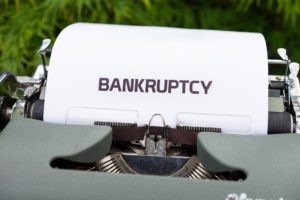The goal of most bankruptcy cases is to receive a discharge of your debts. The Bankruptcy Code provides that a debt is discharged unless excepted from discharge under 11 U.S.C. § 523. The exceptions to discharge are lengthy, but let’s go over some of the most common debts and whether there is an exception to their discharge. Although we cover some non-dischargeable debts, this list surely does not cover all of them, and if you are wondering about whether these apply to your specific situation, you should speak with an experienced bankruptcy attorney.
Can you file bankruptcy on medical bills?
Generally, yes. The bankruptcy code does not except medical debts from discharge, and thus they fall within the general rule that they are dischargeable.
Can you file bankruptcy on credit cards?
Generally, yes. An unsecured credit card is typically considered a general nonpriority unsecured debt. There is an exception for “cash advances” of a certain amount taken within 70 days prior to you filing your bankruptcy case.
Can you file bankruptcy on an unsecured personal loan?
Generally, yes. A personal loan is treated the same as a credit card.
Can you file bankruptcy on a deficiency balance after a vehicle has been repossessed?
Generally, yes.
Can you file bankruptcy on student loans?
As a general rule, no. Whether you can discharge student loans in a bankruptcy case depends on the “Brunner Test”, which asks whether imposing the student loans on the Debtor would be an “undue hardship.” Whether the student loan is an undue hardship or not is a question of fact that depends on a couple of factors:
- Based on your income and expenses, you cannot maintain a minimal standard of living for yourself and your dependents if you are forced to repay your loans.
- Your inability to pay those debts will continue for the foreseeable future.
- You have a history of making good faith attempts to pay your student loans.
These standards must be proven to a bankruptcy judge at trial for the debts to be ordered discharged.
Can you file bankruptcy on debts owed in a divorce decree?
If the debt is “in the nature of support,” then it is never dischargeable. The most common debt that is “in the nature of support” is spousal support or child support. If the debt is non-support debt, but still ordered in the divorce decree, then that debt is dischargeable in a Chapter 13 bankruptcy, but not a Chapter 7.
Can you file bankruptcy on traffic tickets or criminal fines?
No. So long as the debt is owed to a governmental agency, criminal fines and traffic tickets are outside of the purview of the bankruptcy discharge.
This is a non-exclusive list of some of the most common debts in bankruptcy, and whether they are dischargeable. A discharge prevents the creditor from collecting against you personally through collection efforts or a lawsuit. A discharge does not prevent the creditor from repossessing secured property like a vehicle if the debt is secured by the vehicle. At Kootenai Bankruptcy, our experienced attorney can walk you through your debts and assess whether there is risk of non-dischargeability based on your specific circumstances. While we’ve gone over the general rules of the most common debts, it’s important to review your debts with an experienced bankruptcy attorney if you’re considering filing a bankruptcy case. Call or text us today at (208) 719-0232 to meet about your bankruptcy case.

